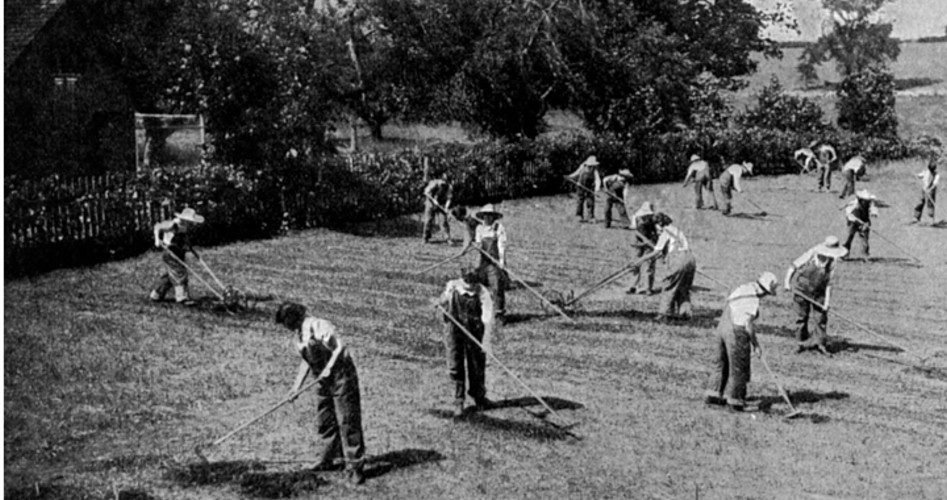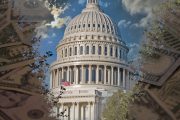
In an effort to atone for so-called “civil rights abuses,” the U.S. Department of Agriculture (USDA) announced Monday that women and Hispanic farmers who have fallen victim to USDA discrimination can file claims for a portion of the $1.33 billion in cash awards and tax payments the agency is now proffering.
Women and Hispanic farmers and ranchers who feel the USDA rejected their loan or loan servicing applications due to their race or gender, beginning from 1981 to 2000, are eligible for payments as long as they file their claim between September 24 and March 25 of next year. In addition to the $1.33 billion in cash and tax rewards, the USDA is also offering up to $160 million in farm debt relief.
“Hispanic and women farmers who believe they have faced discriminatory practices from the USDA must file a claim by March 25, 2013 in order to have a chance to receive a cash payment or loan forgiveness,” Secretary of Agriculture Tom Vilsack said Monday in a statement. “The opening of this claims process is part of USDA’s ongoing efforts to correct the wrongs of the past and ensure fair treatment to all current and future customers.”
Vilsack announced the “civil rights” program, which would provide “a path to justice for Hispanic and women farmers,” in February 2011, paving the way for what he called “an historic day” for the agency. “Many of these farmers and ranchers have waited and fought to get relief, but until now their only means of getting their complaints heard was to file an individual case in federal court,” the USDA secretary said when announcing the program. “Today we are providing folks with a simpler path that enables them to file a claim for compensation that will be resolved by a neutral party without the involvement of the courts.”
This is the third discrimination settlement offered under the Obama administration that would benefit interest groups allegedly disenfranchised because of their race or gender orientation. In his February 2011 statement, Vilsack chronicled the agency’s “troubled” civil rights record and pledged to rectify its abuses through a series of anti-discrimination efforts:
With today’s announcement, we are continuing work to build a new era for civil rights at USDA: correcting our past errors, learning from our mistakes, and outlining definitive action to ensure there will be no missteps in the future. The process has been long and often difficult, but my staff and I have been working hard every day to make USDA a model employer and premier service provider that treats every customer and employee fairly, with dignity and respect.
Another one of the Obama administration’s three reparation efforts was the $1.25-billion Pigford II settlement, which benefited black farmers who claimed to have been discriminated against when applying for loans from 1981 to 1996 but had failed to file on time for the original 1999 Pigford settlement.
Criticisms from Republicans and conservative groups ensued after President Obama signed the legislation in December 2010, paving the way for about 80,000 African-American farmers to file claims projected to average about $50,000. Many critics called it an outright raid on the U.S. Treasury that would force taxpayers to subsidize direct payments to Democratic special interests in the farming industry.
“Any time you’re trying to go back and compensate people based on past discrimination, figuring out who should be compensated and how much is always tricky, so the devil’s in the details,” Alan Abramowitz, a political scientist at the Atlanta-based Emory University, suggested at the time.
Furthermore, allegations of fraud had also been reported, considering the Pigford II legislation was the second phase of a lawsuit already filed by North Carolina farmer Timothy Pigford, who launched an initiative with 400 other black farmers to protest the USDA’s loan practices between 1983 and 1987. One primary concern was that about 33,000 African-American-owned farms had been in existence at the time of the original Pigford filing, yet a staggering 80,000 claimants had filed for the Pigford II settlement.
The enigma prompted Rep. Michele Bachmann (R-Minn.) to call Pigford II “a complete fraud.” Investors Business Daily noted in an editorial, “This is what happens when government rings the dinner bell, and it’s an indication of just how loose the rules are for vetting past injustices, real or not.” Citing one seemingly blatant narrative of fraud, the Christian Science Monitor reported in a December 2010 article:
Jimmy Dismuke, a black hog farmer from Arkansas, claims he’s seen fraud first-hand in the Pigford process. In a recent story published at Big Government.com, a conservative website, Mr. Dismuke says he has counted more than 300 fraudulent Pigford claims in Arkansas alone, including a case in which people who kept potted tomato plants claimed to be farmers and got $50,000. He also claims that private lawyers made the rounds in black churches, enticing potential claimants with easy payouts.
“Pigford is the biggest rip-off this country has ever known, and there are lots of people in positions of power that know it,” Dismuke writes. “Politicians are using it to buy votes. Trial lawyers are using it to get rich.”
The third discrimination settlement instituted under the Obama administration was the Keepseagle settlement, which offered $760 million to Native American farmers and ranchers who believed they were discriminated against for their loan applications between 1981 and 1999. Again, suspicions of fraud had also been a grave concern.
The USDA plans to launch an extensive campaign to spread the word about its latest effort to reconcile these purported discrimination cases. Meanwhile, the Obama administration is sure to capitalize on the effort to court Hispanic and women voters who may be allured by the White House’s so-called “sensitivity” to civil rights abuses.



